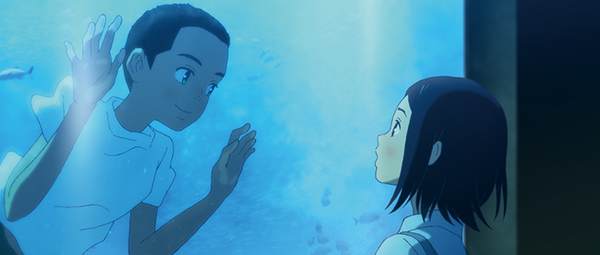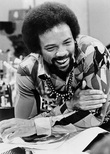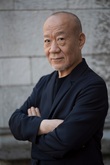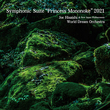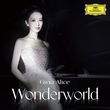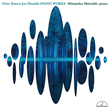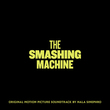Joe Hisaishi’s Children of the Sea (Original Motion Picture Soundtrack)
The newest film score of Joe Hisaishi completed with method of minimal music.
Text by Takuto Kaku
We should know the fact that this is the first music score for long animation film Jo Hisaishi composed ever since last one, A tale of princess Kaguya. The composer, who had enjoyed culminations by working with Hayao Miyazaki and Isao Takahata, has never accepted new proposals. He may have lost momentum toward new commissions. Quality of the production always is the question to come first. Weather his involvement as the composer can be replaceable, or not comes next, and the list of the questions goes on. Such high standards means a lot to prominent composer, who had accomplished so many beautiful scores for Studio Ghibli. So this is quite understandable.

Joe Hisaishi Children of The Sea (Original Motion Picture Soundtrack) Universal(2019)
Finally, The production team of Children of the sea has succeeded to persuade Joe Hisaishi to accept their offer. The composer himself admitted their enthusiasm was one of the reasons to accept. And another reason for him to go was that the story was abstract enough to activate his imagination.” The more abstract, the more room for the imagination. One fixed interpretation never gives music its own liberty to fly with the plot. That is to say, the composer can flee away from well known methods to depict emotions of each character and situations on the plot. As a result, composer has come up with the idea to employ the method of minimal music.
No other composition technic, except Minimal music has never been familiar with Hisaishi from his youth to now. Minimal music seems to have been perpetual gemstones for him. This music may bring tabula rasa state to him. He was known as the composer who employs elements of minimal music to visual audio works if they allow him to do so. However, I can not think of any other recent works into which the essence of minimal music was thoroughly brought. This music means something else than Back Ground Music for the play. There is an independence, an autonomy of the music achieved by its perfectness. It realizes to render parallel world against the one created by the image. Not much sentimental involvements, the music provokes, and it avoids destroying the presence and details of the visual effect. There is as much dynamics as the chamber ensemble could give. What a skill! This kind of the secrets of skill are only available for the hands of the composer who has deep understanding what is minimal music. And this animation is the work of art which can afford that. I also appreciate beautiful articulation of the tones. We may remember this piece of work blessed by the coincidental meeting with the composer.
Translated by Kazuki Takami (intoxicate)

